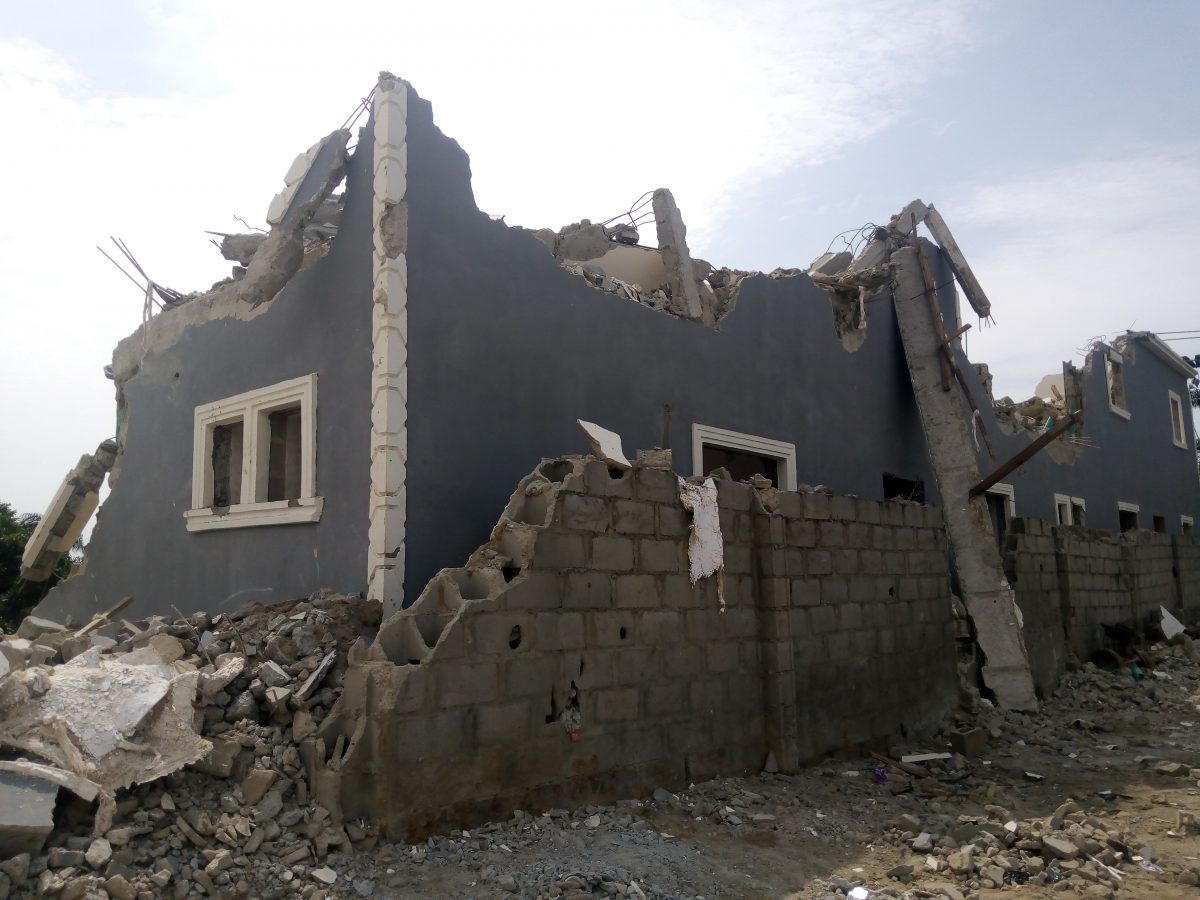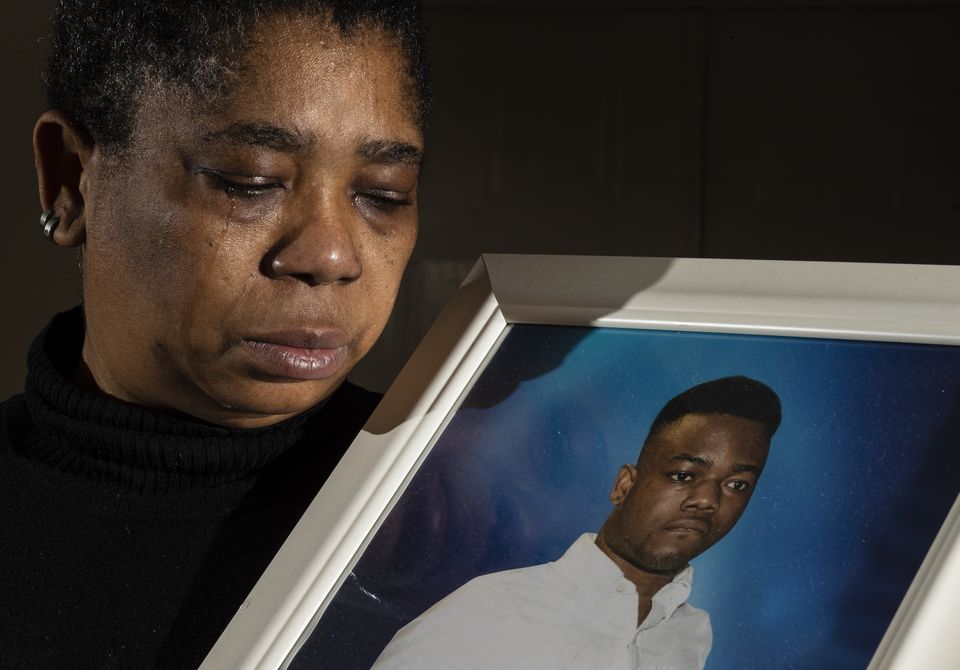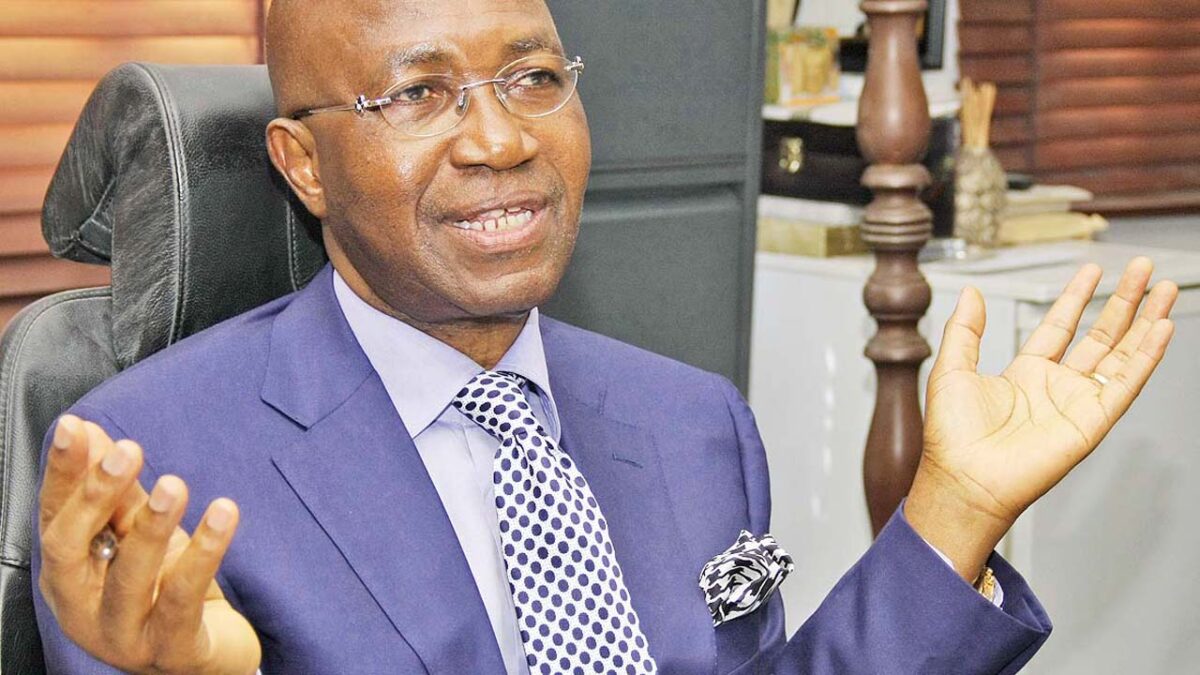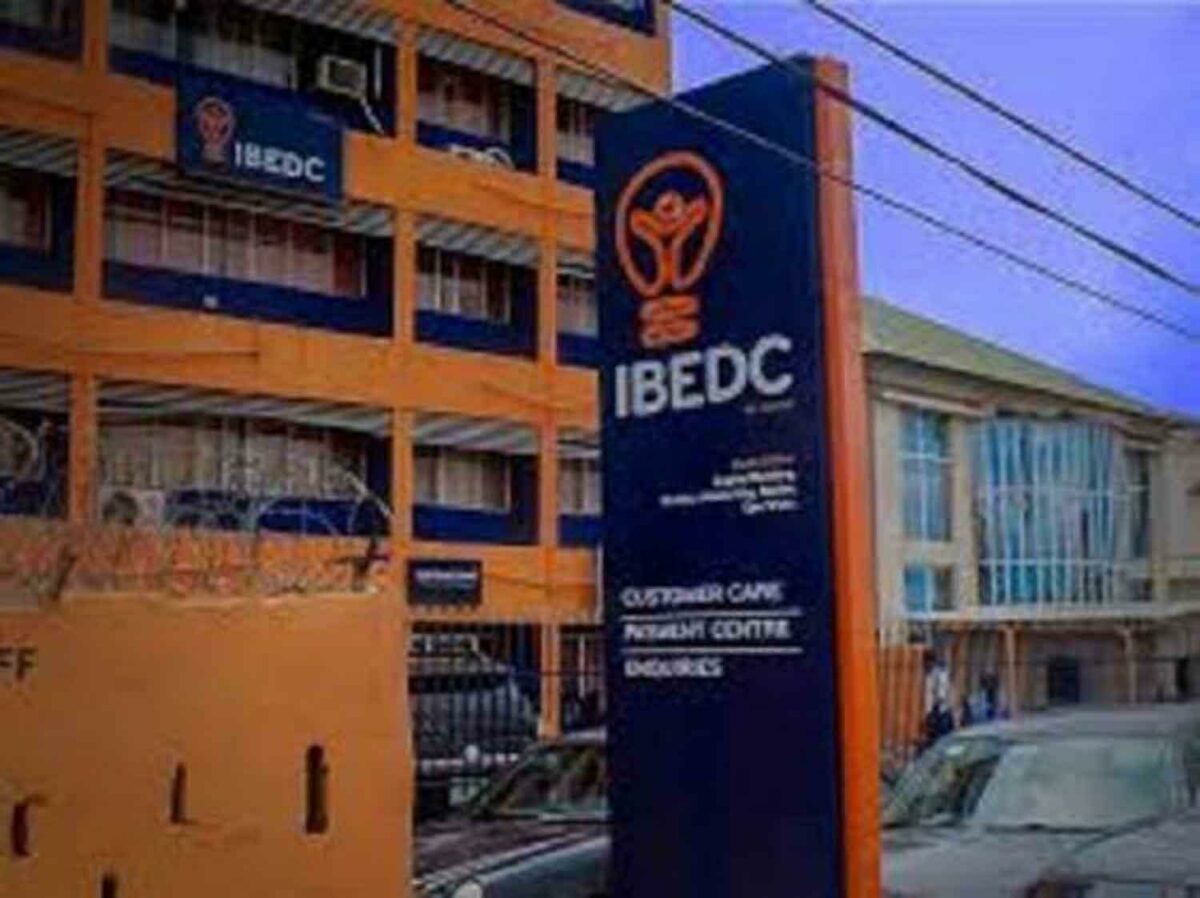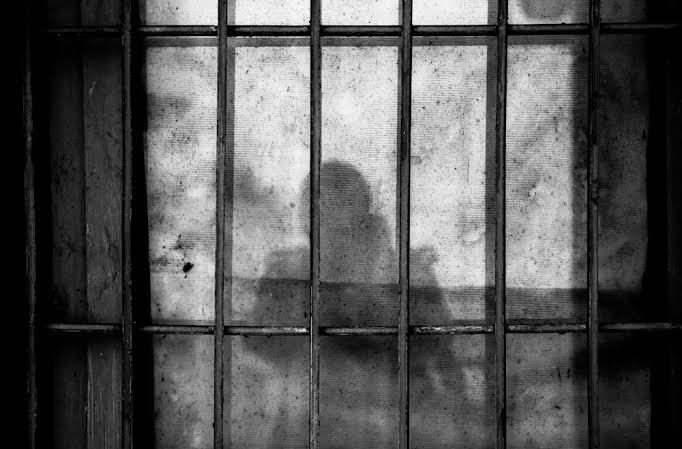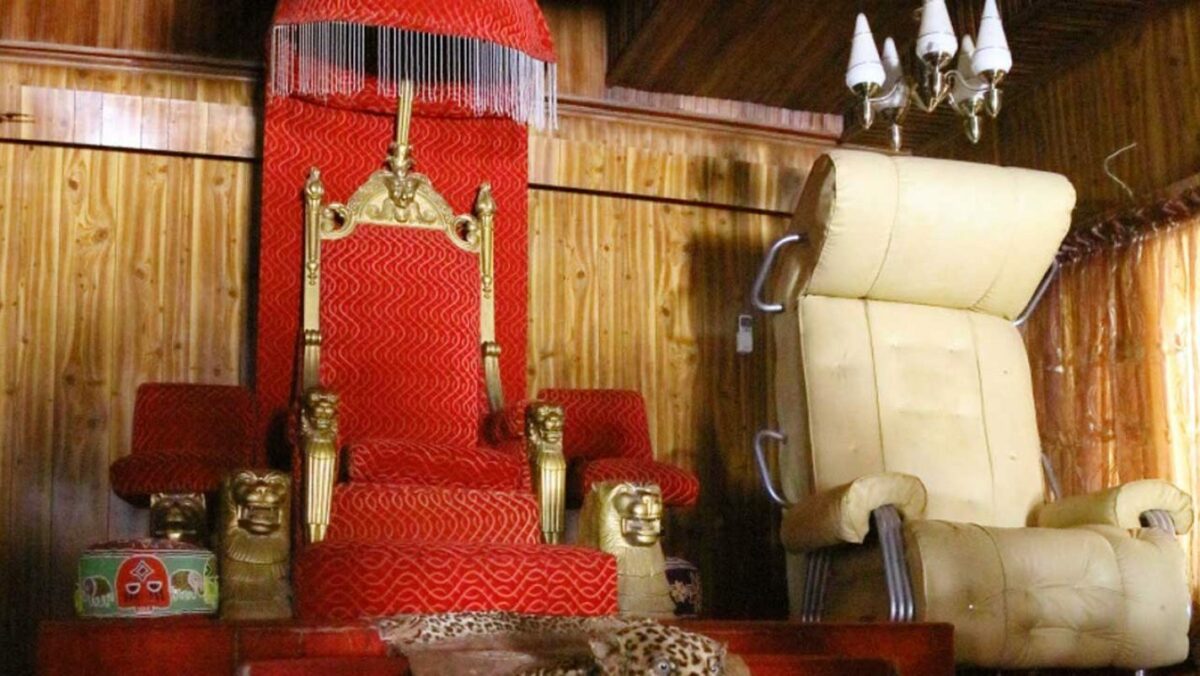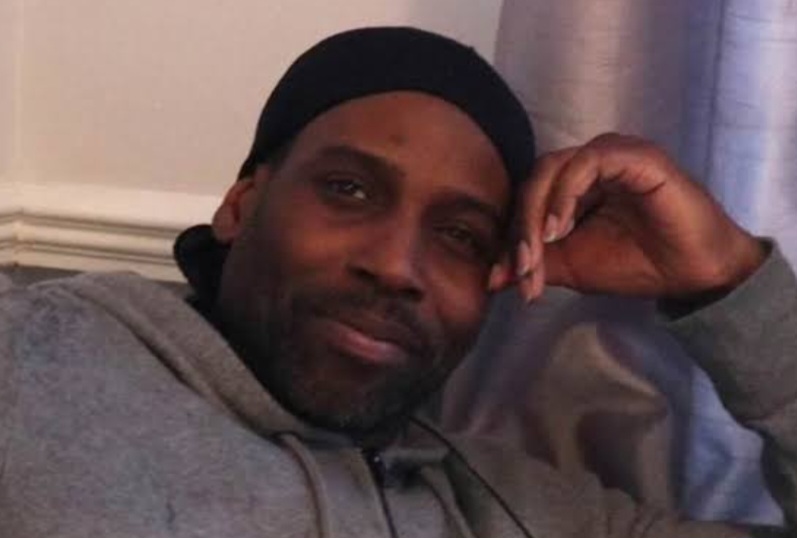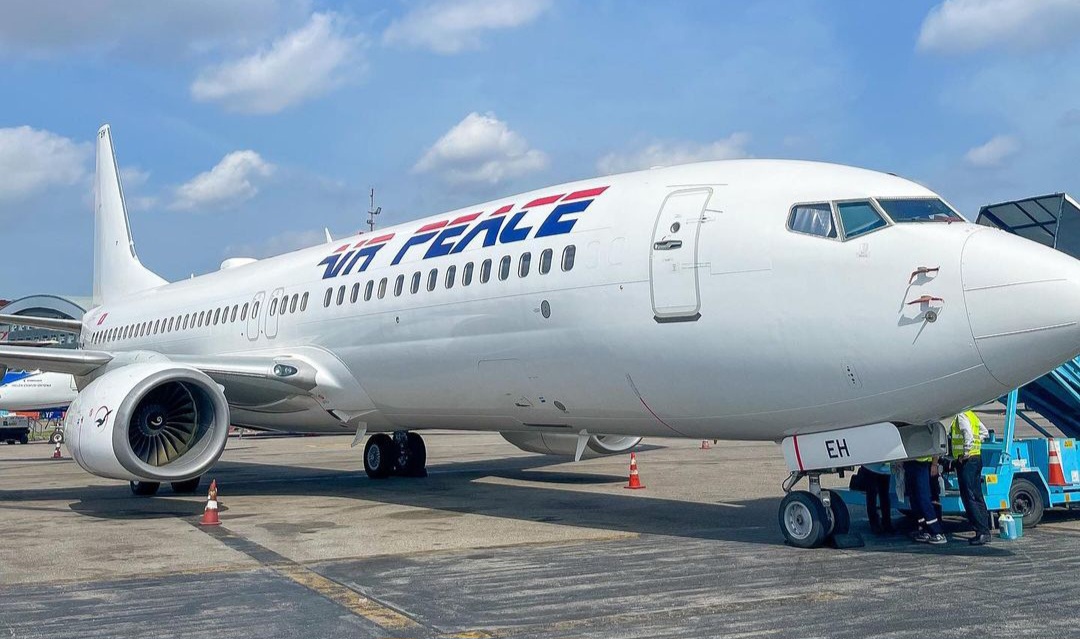In the Ogombo area of Ajah in Lagos, several residents are now homeless; some others are constantly praying against the calamity that befell their neighbours. Those who built houses on the lands bequeathed to them by their ancestors have suddenly become tenants within the same neighbourhood. The few who have roofs over their heads are the ones who dine with the state.
IN A NEW TOWN, OLD PEOPLE CRY
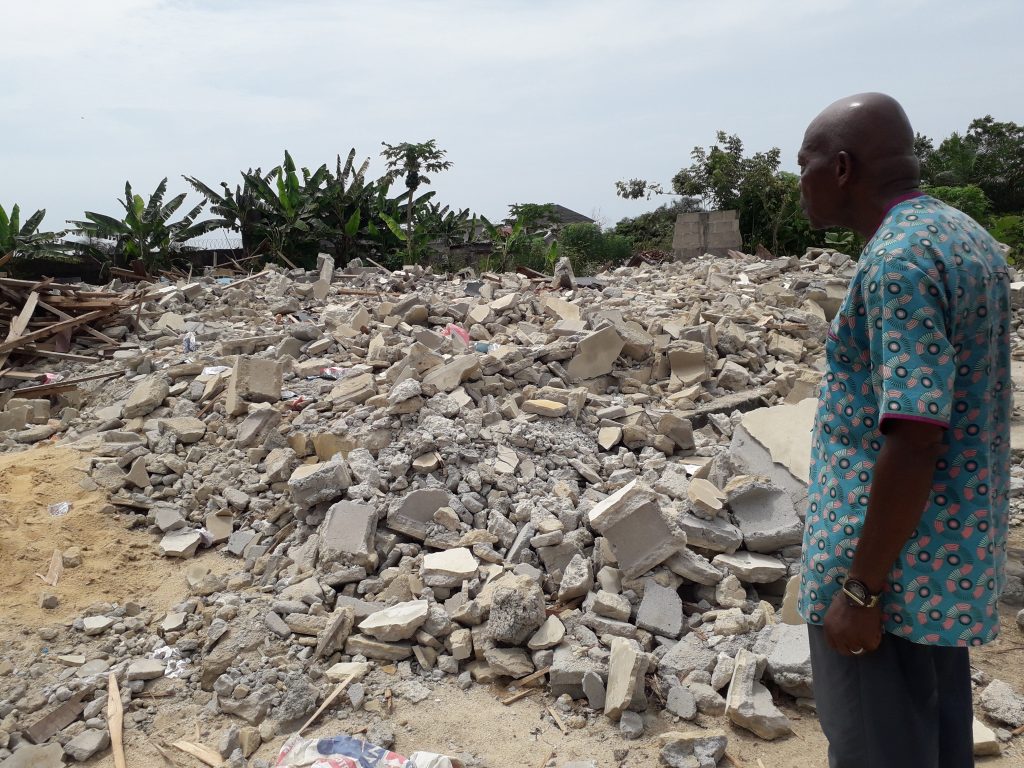
In the morning of October 21, 2021, the staff of Lagos State Building Control Agency (LASBCA) and the officers of the Nigeria Police attached to the Lagos State Environmental and Special Offences Enforcement Unit, popularly called task force, marched into Newtown and Alabeko estates with five bulldozers and brought down 63 houses.
Over a hundred occupants, both old dependants and low-income earners, were displaced. Ibekwe’s house was one of the many others that were not spared in the operation.
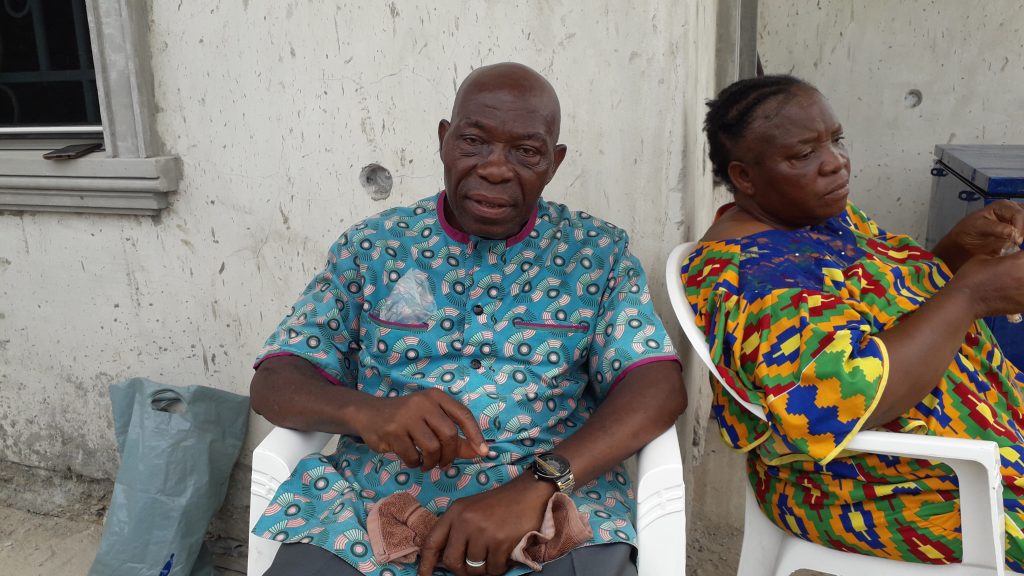
As Ibekwe opened his mouth, he recalled his toils before retirement, telling FIJ, “I served as a pastor in Assemblies of God for 35 years. After my meritorious service, I was given money to build this house. At my age, where do I start now?”
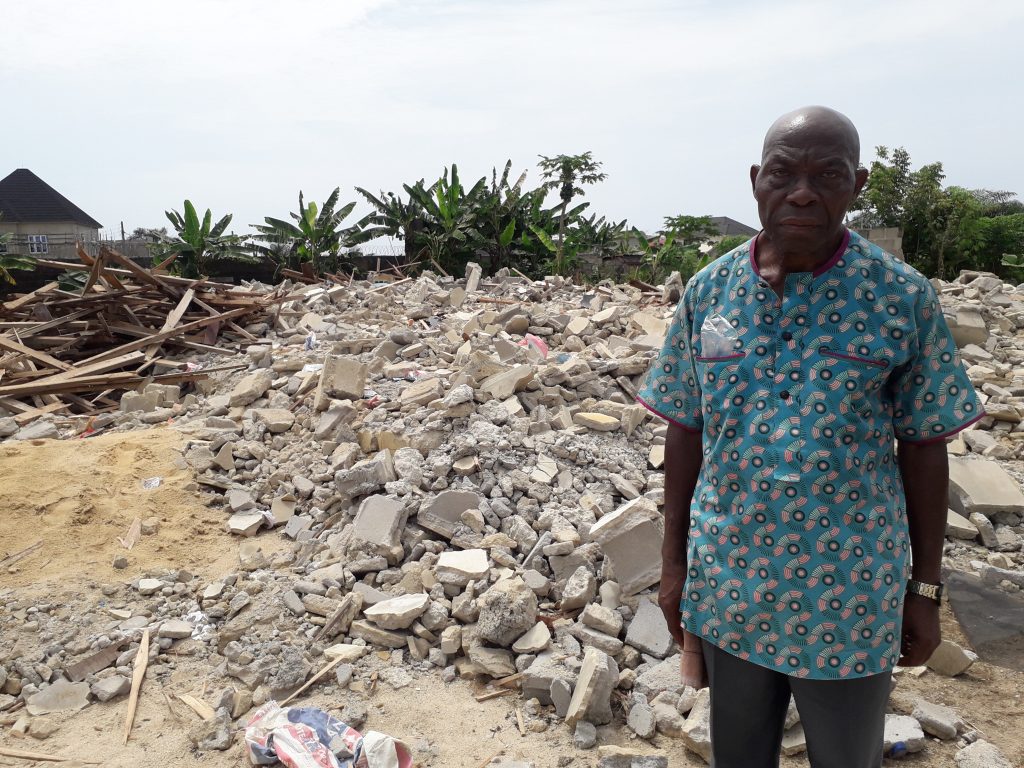
Without being asked, Ibekwe, 70, mustered all his energy to stand, though his wrinkling body nearly failed him. The words that accompanied that action were sharp. “Come, follow me,” he waved to this reporter. The destination was the debris of his four-room bungalow.
“This is a wicked thing that has been done to me,” he told FIJ. “As they pulled the whole building down, I stood still to watch them. The operator warned me to step behind. I said, ‘You are destroying my house and asking me to move back.’”
At the moment, Ibekwe and his wife do not have anywhere to go outside Ogombo. They now sleep in the church within the neighbourhood, waiting for a miracle to happen to them someday.
OGOMBO IN THE EYES OF THE STORM
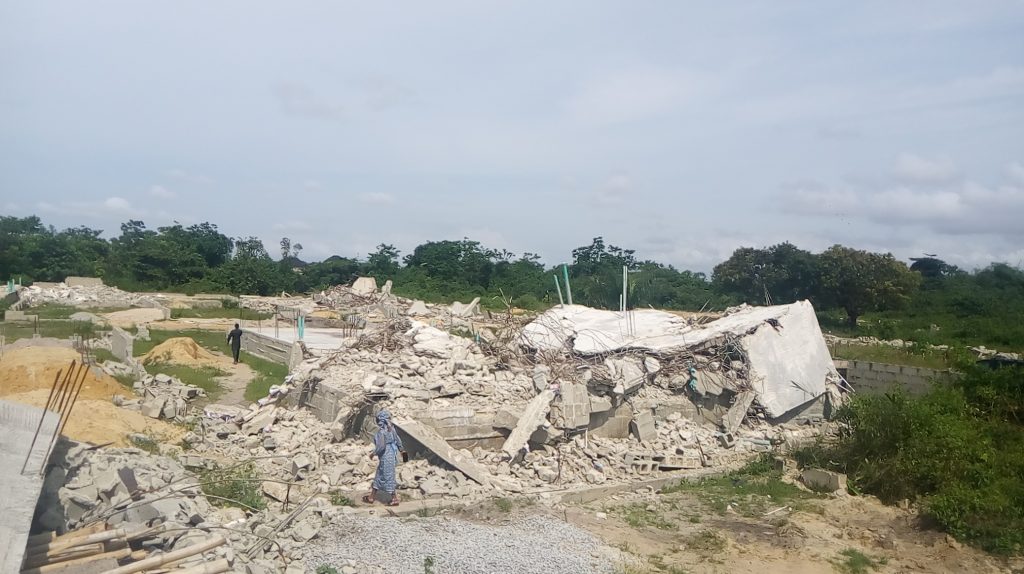
The abrupt demolition of houses in these two estates can be traced to a land-grabbing case that predated the arrival of most of today’s landowners in the community.
Traditionally, the entire expanse of land in Ogombo belongs to six families, including Egunjobi, Owoje and Baoku. As civilization gradually crept into Lagos Island, the state government and real estate surveyors began to eye the community.
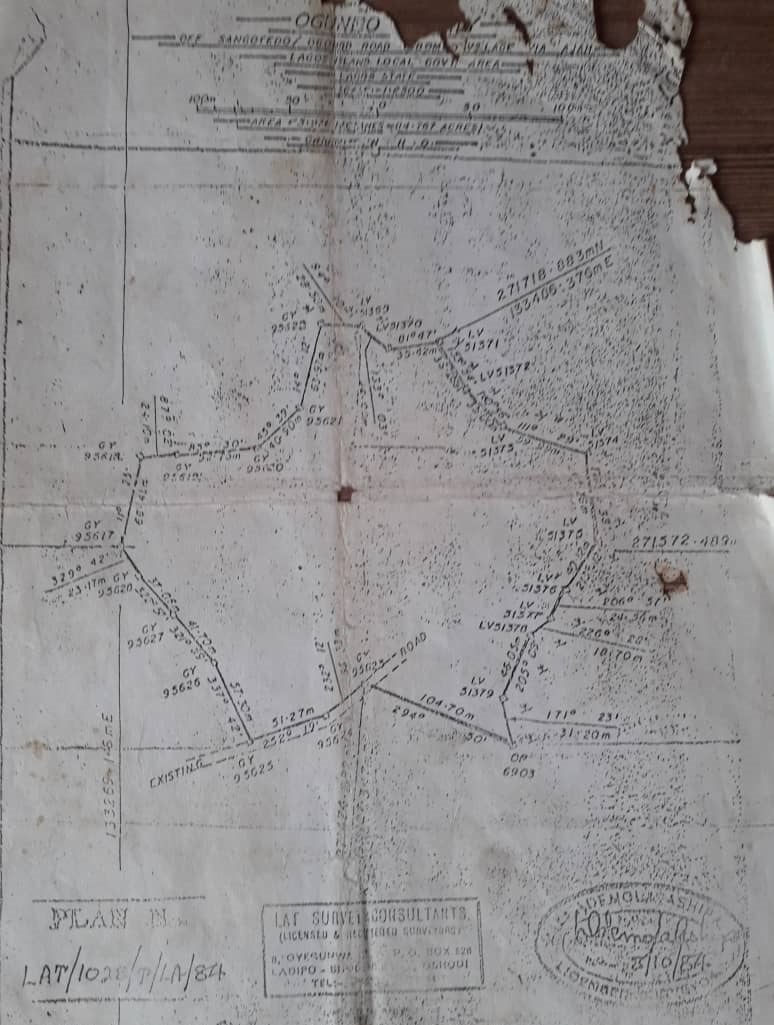
During the administration of former governor Bola Tinubu in 2003, the state government proposed the Fourth Mainland Bridge project to address the transportation needs of a growing population in Lagos.
The 38-kilometer bridge, which would complement Eko, Carter and Third Mainland Bridges upon completion, would pass through Lekki, Langbasa, and Baiyeku towns to Itamaga in Ikorodu. Successive governments have been unable to bring the project to fruition, largely because of the number of shanties that would be wiped away which may ultimately cause more social problems.
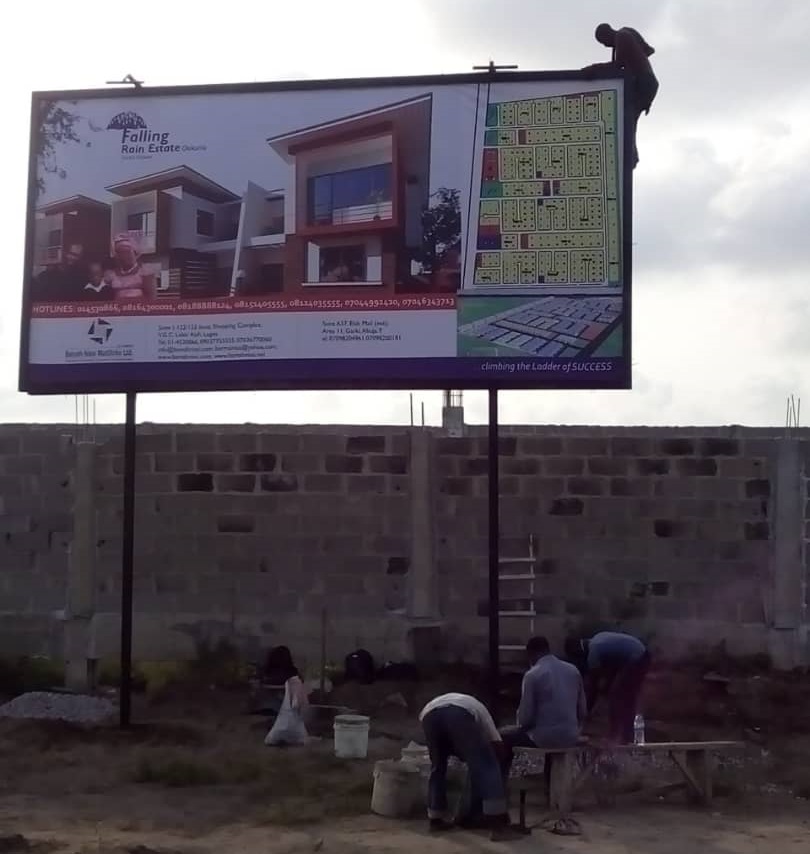
Although by virtue of the public land acquisition law, the state government may acquire land from individual landowners. Nonetheless, they will have the assurance of a compensation.
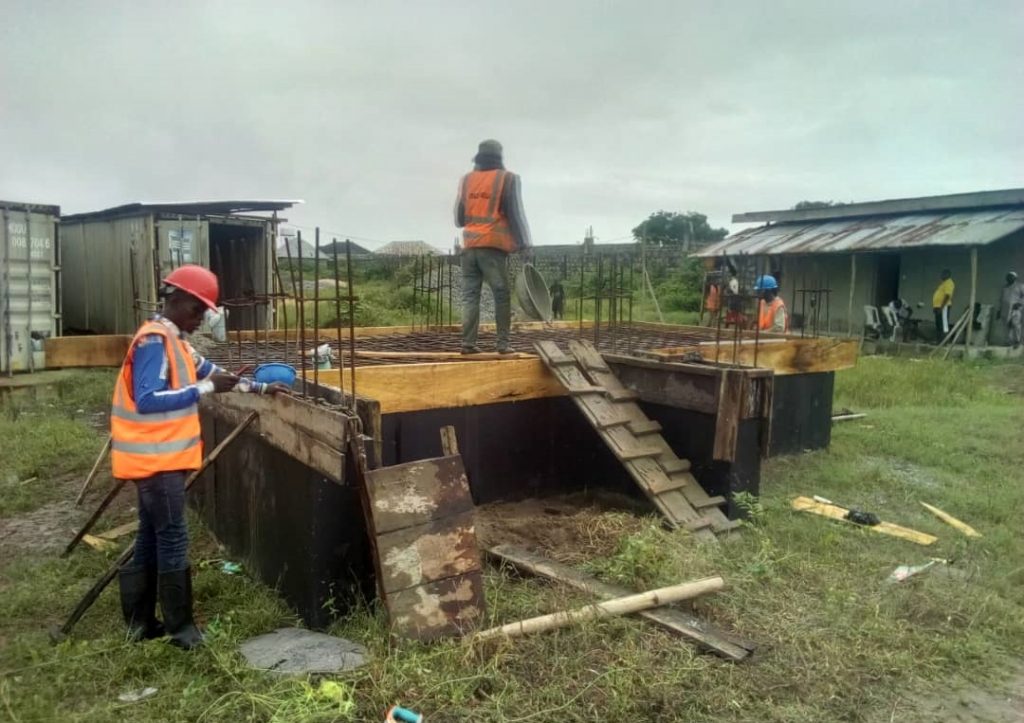
But the current situation is different. Rotimi Oni-Orisan, a real estate developer, bought 20 hectares of land from one of the indigenous landowners. He would later encroach on other families’ portions of land, according to Shafideen Edunjobi, one of the traditional landowners.
“We took him and the state government to court since he insisted that the government sold the other part to him,” Edunjobi told FIJ. “All the times we have appeared in court together, he has never been able to show receipt of payment to the state government.”
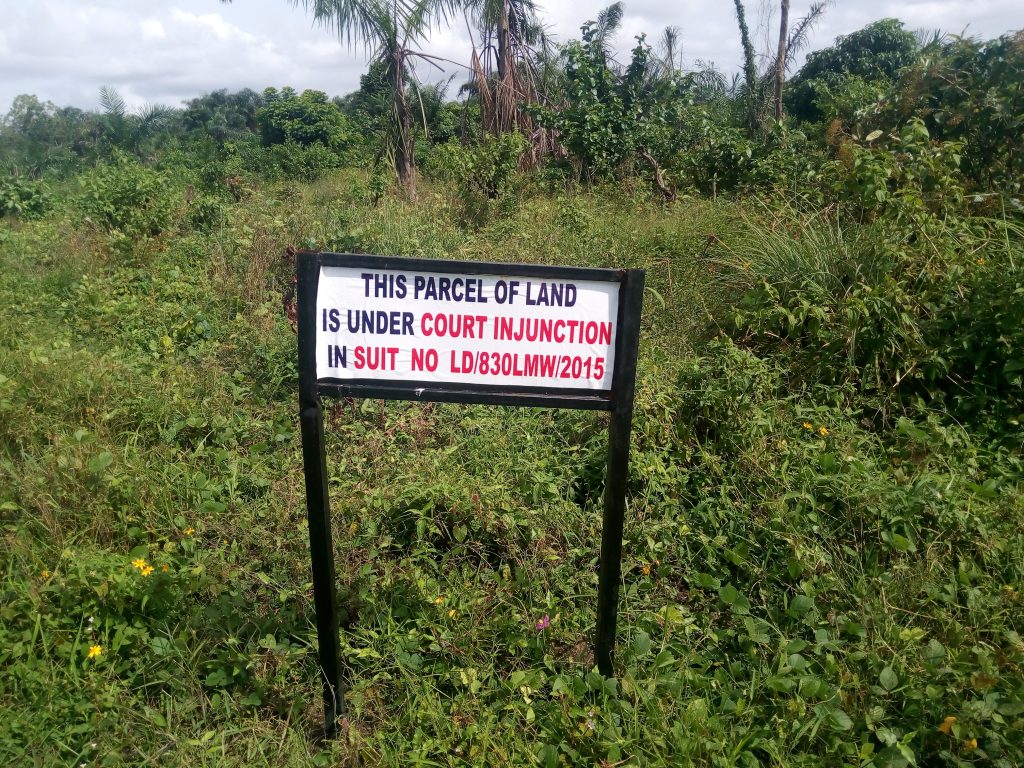
In 2015, a high court in Epe gave an injunction for the suspension of all construction projects on the disputed land until a verdict was given.
“That’s why the development in Ogombo has been static,” Edunjobi noted.
COURT CONTEMPT, MALICIOUS DEMOLITION
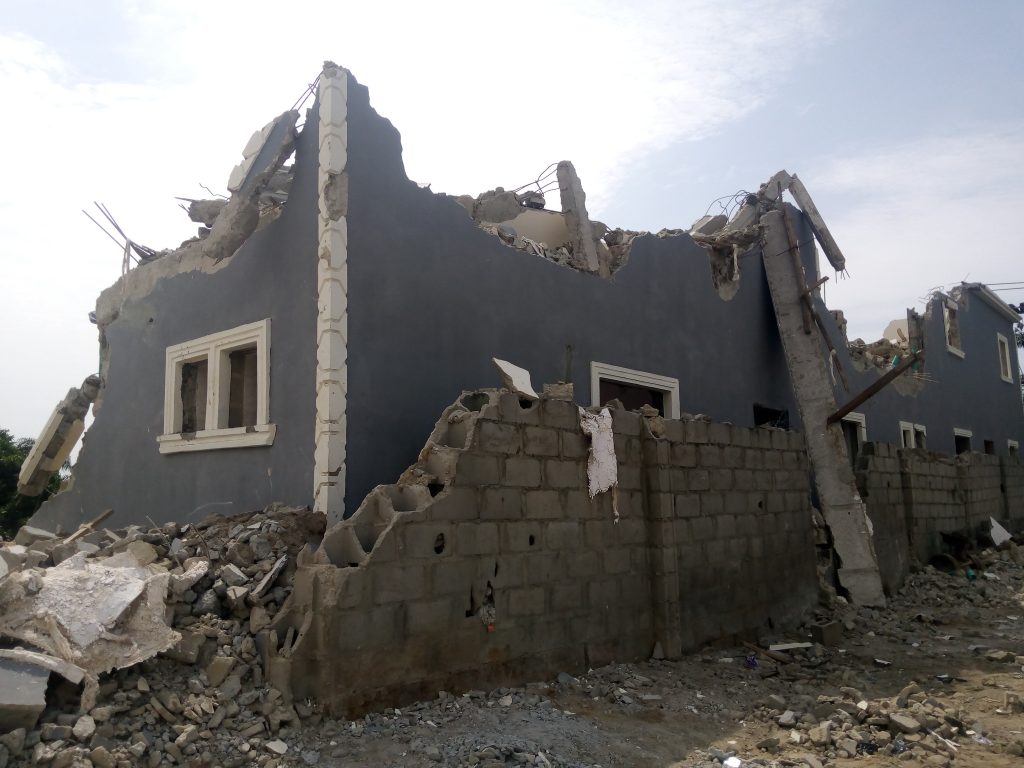
In early October, LASBCA raided Newtown and Alabeko, marked many houses for demolition, and gave a 14-day ultimatum. Some took it with a pinch of salt, relying on the completeness of their documents. But this was not the case with Anthony Nwobodo.
“From the time I saw the notice, I began to make calls and run helter-skelter. I didn’t take anything for granted,” he said.
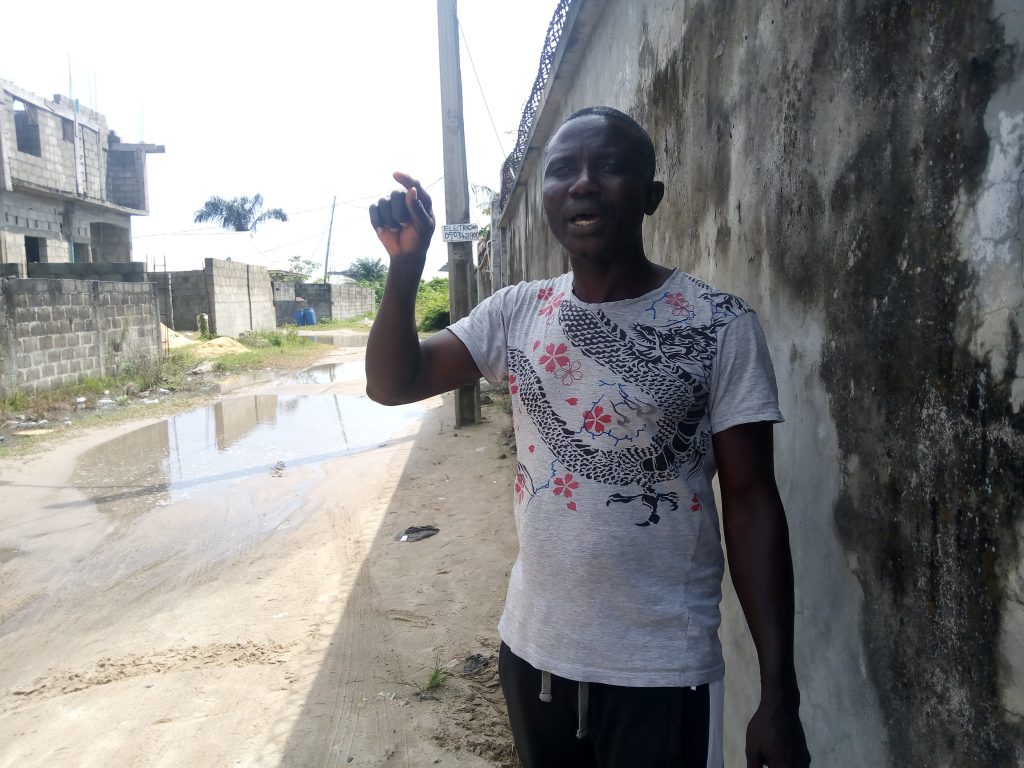
LABSCA advised Nwobodo to consult New Town Development Authority (NTDA) as they were the ones who directed LABSCA to issue an eviction notice. Upon consultation, NTDA first promised him to return to the estate for inspection.
“In fact, New Town Development Authority (NTDA), at first, phoned me, asking for transport fare so they could come for an estate inspection and mapping. I sent them N20,000 and also persuaded two other landlords to do the same,” he said.
However, there was one demand he rejected in the interest of others in the estate. NTDA asked him to pay five million naira to save his house. Nwobodo believed the demand was fraudulent and kept looking for a way out.
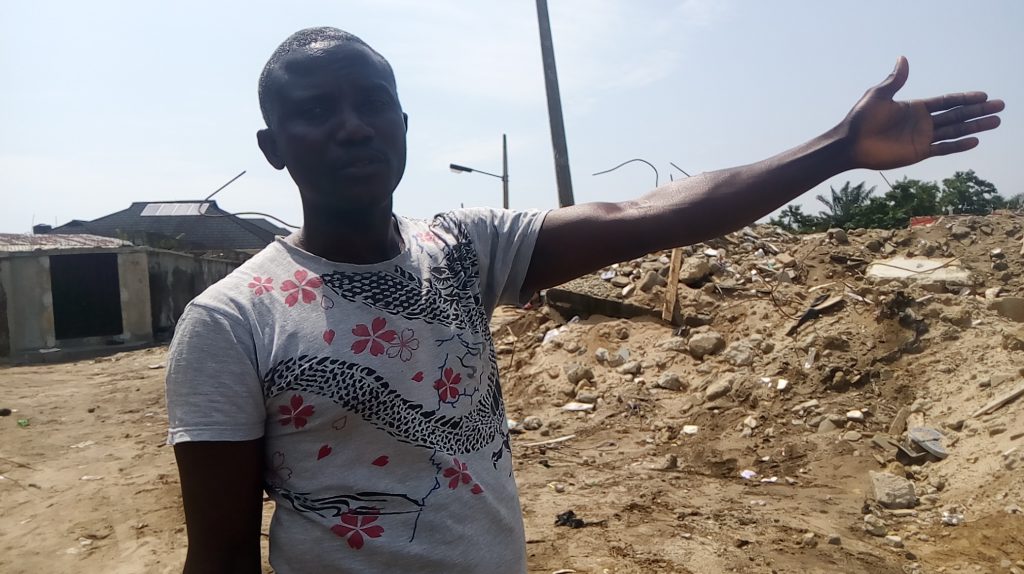
As hard as he tried, all his efforts would end in futility. In fact, he had just left NTDA’s office in Ikeja when the demolition commenced.
“I asked myself, ‘If I paid the money because I could afford it, what would be my joy or explanation when my neighbours’ houses got demolished and mine stood?’” he said.
“After all, I have all the legal documents backing my land possession. I didn’t cut corners to acquire this property. I bought the land from Vanguard Newspapers Ltd. in 2017.”
Vanguard had decided to sell the land because the development in Ogombo was slow.
Government agents would not give Nwobodo a chance to return home, let alone remove his personal belongings from the house. All his belongings, including a car and an international passport with a valid visa, were irrecoverable.
He has not only lost his home in Nigeria, but also cannot travel oversea to meet his family.
“I didn’t pick something as little as a pin from this house,” he told FIJ. “After all these, I had to hire another excavator to remove the irons and see if I could recover my passport. I am yet to find it.”
“Which government will come to destroy people’s property just like that, as if we are animals?” He asked.
‘SELECTIVE INJUSTICE’
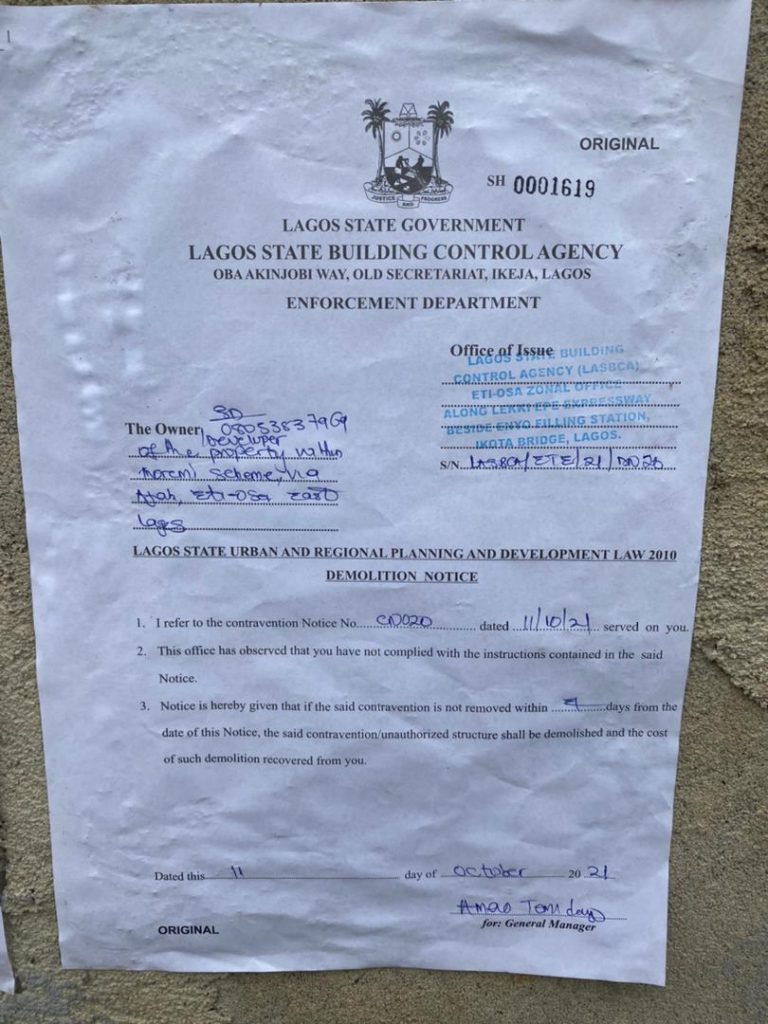
Matthew Akindele, a seafarer with a private marine firm, West African Ventures, was one of the co-landlords Nwobodo mentioned during his interview. Akindele witnessed the incident, but what made the matter worse, his six-year-old son saw how the entire family would be displaced in a twinkle of an eye.
“I just brought my son back from school to see all these,” Akindele told FIJ. “The boy asked me: ‘Daddy, why are they destroying our house?’ I fought back tears and told him, ‘Don’t worry; we will build another one.”

How long will it take Akindele to build back his N80 million property? This is what breaks his heart daily.
“I built this house with all my sweat. Not even my tenants were able to pick anything in the house,” said Akindele.
He had lived with his family of three in the estate for 8 years and had no inkling this fate would ever befall him. LABSCA executed the demolition, but they were not indiscriminate. FIJ observed that some few houses were spared. They were owned by the influential people in the community.
For example: In close two, the parallel house owned by Bose Akinyemi, a Chief Superintendent of Police in Lagos, was marked, but eventually spared. The houses on both sides of the police chief’s apartment were taken down.
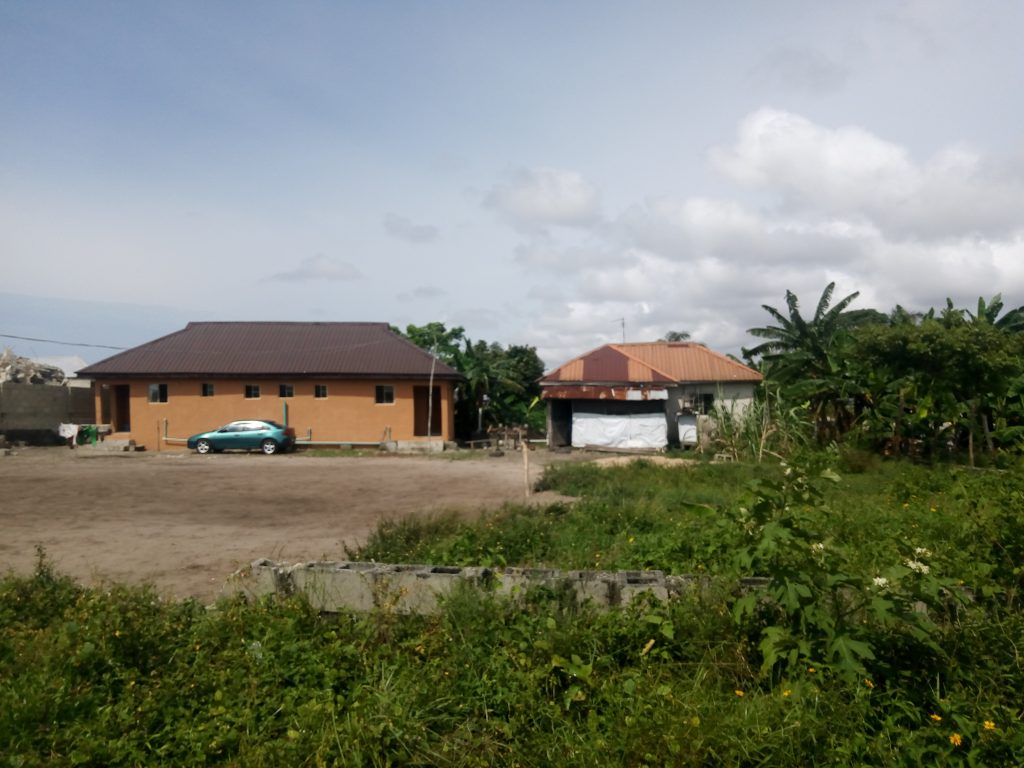
The house belonging to Lydia Omogbai, a member of NTDA’s staff, within Newtown Estate, was not touched. Same for Wale Ogunyode, the estate chairman. David Olufemi, the estate’s lawyer’s house was located close to Nwobodo and Akindele’s houses, but it is still standing. “The houses of those who could call the government were completely saved from the wreck,” a source told FIJ.
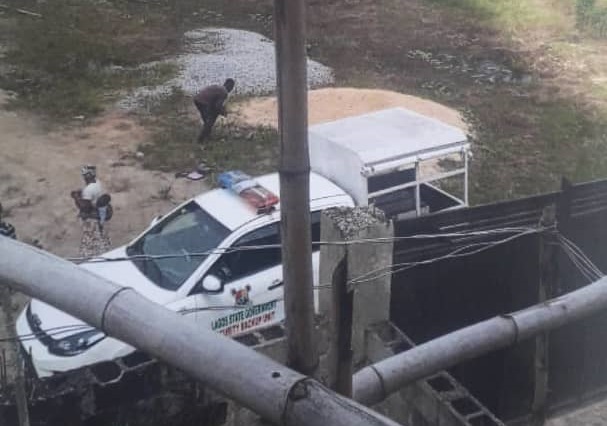
The source further said he had observed that while the demolition was still ongoing, some of the team that came for the operation went round to take pictures of shanties and a forest.
“These are the signs suggesting that the demolition had a pattern of land-grabbing in it,” the source noted. “They seized our own phones and scared us with the police officers, but I later saw some of them going round to take pictures of shanties within the estate so that they could present them in court that the community was largely undeveloped, a reason for the government to acquire it.”
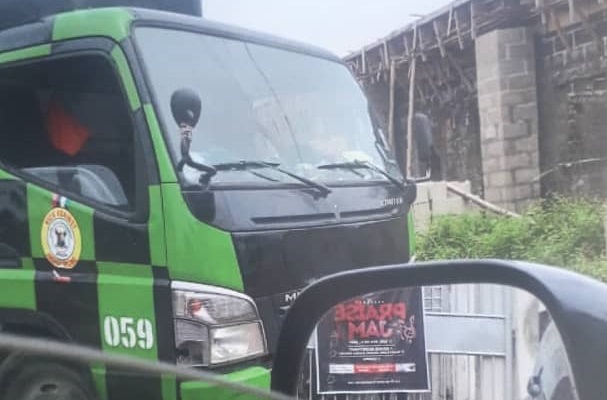
Also, many of these aggrieved residents have accused their chairman of conniving with NTDA to betray them. This distrust thrives because he still has a roof over his head while his followers are homeless.
“I am also pained by what happened,” the chairman told FIJ. “I made all efforts to prevent this, but unfortunately, they didn’t turn out well. This came from the government, but before this time, I advised these people complaining now that they should consult the right authorities for appropriate resolution.”
When contacted for comment, Adetayo Akitoye, the spokesman of LABSCA, also referred FIJ to NTDA. But Olakunle John Aboyeji, NTDA’s General Manager, would not answer FIJ’s calls. He also failed to respond to a text message for comments.
ANY HOPE FOR THE DISPLACED?
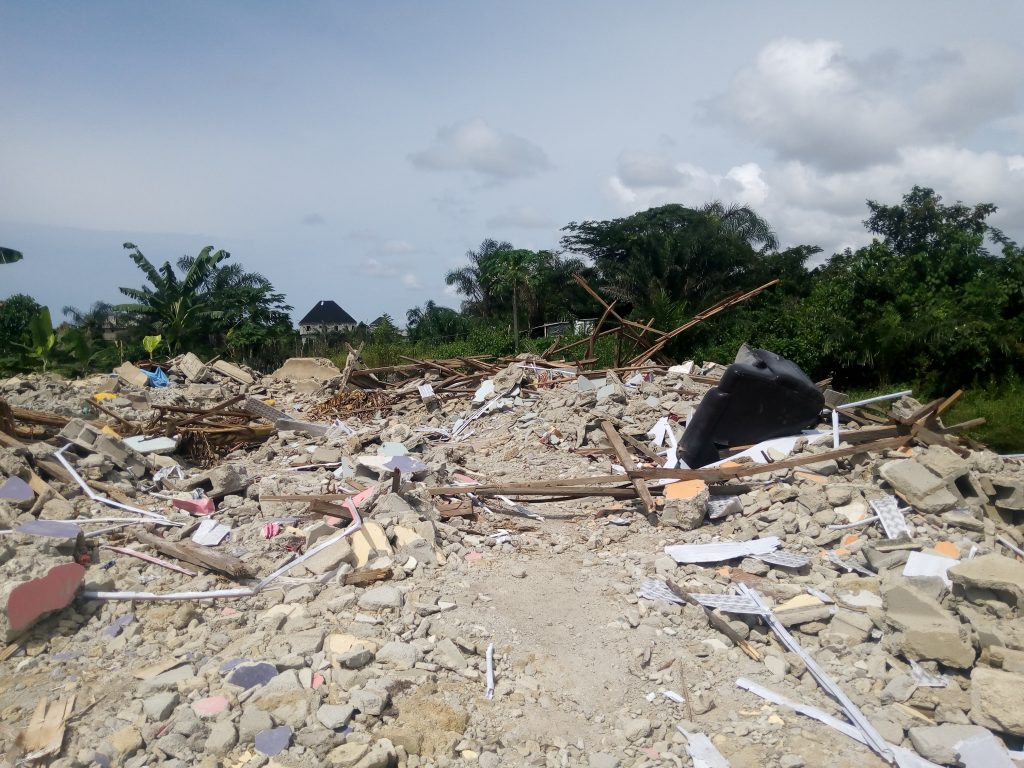
At the Lagos Real Estate Market Place Conference and Exhibitions organised by the Lagos State Real Estate Regulatory Authority (LASRERA) on Tuesday, Babajide Sanwo-Olu, the Lagos State Governor, announced the government’s plan to begin complete removal of buildings on untitled lands across the state next year.
He said the move woud curb incidents of land grabbing, while admitting that there had been state officials sabotaging the full take-off of the state’s Enterprise Geographic Information System (e-GIS) project, another initiative to automate approval of land surveys and allocation of titles.
The governor said, “We will also be carrying out genuine reforms in our survey department. We need to have our e-GIS platform up and running after 10 years that it was initiated”.
“I’m expressing my disappointment in some government officials sabotaging these efforts. I will look for the culprits and I will be ruthless in meting out punishment. I will ensure these saboteurs have no place in my government.”
Meanwhile, Lagos government and traditional landowners in Ogombo submitted petitions to a high court in October 25, over the land tussle between them. The victims of the demolition also presented their petition.
The government denied knowledge of the demolition, despite clear evidence that the actors were police officers and government agencies.
Although they resisted people attempting to take pictures during the demolition, FIJ obtained some pictoral evidence. At least, two vehicles, during the demolition, came from the special operations unit of the governor’s office.
Multiple sources revealed that there are indications some people are hiding under the state to grab Newtown and Alabeko estates for private businesses.
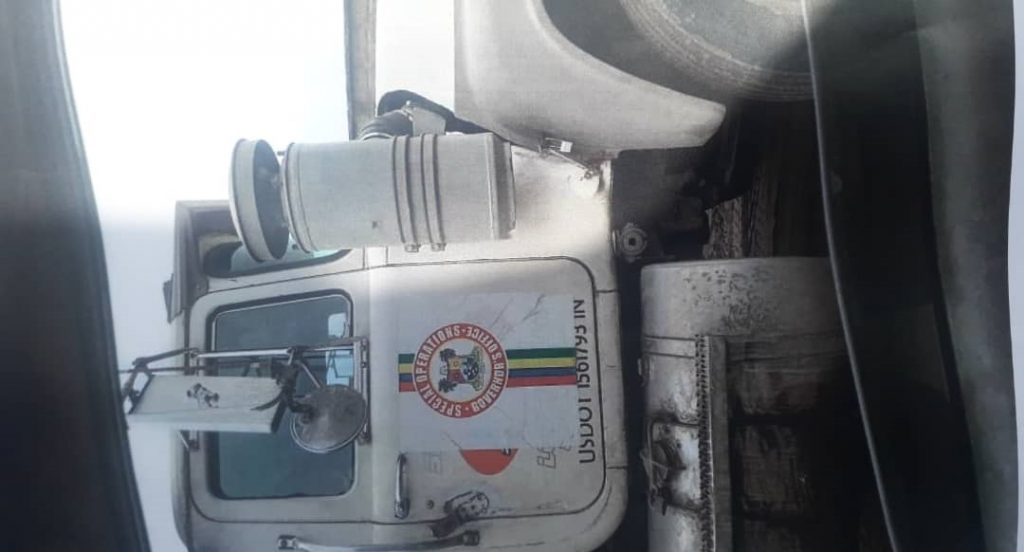
While speaking with FIJ, Oni–Orisan, the Group Managing Director of Bamah Nissi Multilinks Ltd., denied any involvement in the land acquisition, assuring our reporter that he would also be in court on December 1 to defend himself. FIJ confirmed that he did not appear at the hearing.
During the last hearing, the judge expressed his dissatisfaction with the continuation of the case for seven years.
The case over the ownership of the disputed land in Ogombo was adjourned untill February 15, 2022. The court also held that the demolition would be addressed forthwith.
Subscribe
Be the first to receive special investigative reports and features in your inbox.


